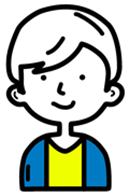Your child’s emotional development continues to progress once they begin school. From 5-11 children start to understand that other people’s feelings matter too.
Your child will be making and choosing their own friends. It takes time for them to learn how to cooperate with each other, and this can make friendships tricky. You can help them think about how they feel - and how their friend might feel too.
 Being a good friend and having good friends are important life skills to learn.
Being a good friend and having good friends are important life skills to learn.
Primary aged children are starting to get better at managing their own emotions. They can talk more easily about how they are feeling. They are more able to take on board advice and techniques to help them.
From around age 7-11 memory and concentration grows. Children can think more quickly and can remember more than one thing at a time. They are enthusiastic learners and enjoy doing things with you.
They will be developing strong opinions and will ‘argue back’ and want to do things their way! It can take practise for you both to manage this together without upsets.
Supporting Development
Children often use the way they behave to show you how they feel. Behaviour is still a big part of the way children this age communicate feelings.
If your child is behaving in a way that worries you – trying to work out how they are feeling can help you work out how best to help them.
Helping your child find the words to describe how they feel will help them to be able to use these, rather than relying on behaviour to show you they are struggling.
Be a good role model and talk about your own feelings and show how you cope with them. Take time to listen to your child when they try to explain to you how they feel. It takes practise to recognise and name feelings.
Having you to listen calmly will give them confidence to open up and share.
Keeping to boundaries and rules is important for children this age. Although they may push for more freedoms and have strong opinions they still need the security of knowing you are ‘in charge’ and will keep them safe. They will enjoy being able to make choices when possible. Give them the chance to talk about what they think and come to decisions together when you can. This way they can practising listening to another’s points of view and finding a way to move forward.
The online ‘Online Solihull Parenting Course’ is available free to Norfolk Parents. This can help you to help the make sense of their thoughts, feelings and behaviour and give you the tools to support them.
Friendships
Your child will be learning about the importance of friendships. The give and take of friendship are skills that take time to learn. Parents and carers can help with this;
You can contact the Healthy Child Programme by calling Just One Number on 0300 300 0123 or texting Parentline on 07520 631590. Our opening hours are 8am-6pm Monday-Friday (excluding bank holidays) and 9am-1pm on Saturdays.
If you are 11-19 you can text ChatHealth on 07480 635060 for confidential advice from one of our team.
For 11–25 year olds Kooth is a free, confidential and safe way to receive online counselling, advice and emotional well-being support.
Childline - Children and young people under 19 can call 0800 1111 for free support.
Young Minds Parents Helpline - Call 0808 802 5544 for free Mon-Fri from 9.30am to 4pm.
To speak to other Norfolk parents and carers, you can join our online community forum below.